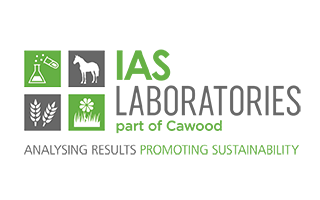Turning the tide on drinking water quality analysis
All life on Earth depends on water. Whether it’s used for drinking, domestic use, food production, or recreational purposes, safe and readily available water is essential for public health. However, not everyone has access to clean water, and while it may not smell, taste, or look different, it may still pose a health risk.
Did you know that if you have a private water supply, it is your responsibility to ensure that your drinking water is safe to drink? Read on to find out about the importance of high-quality drinking water, the increased risk that arises from having a private supply, the best time to test your water, and what IAS can do to help.
The importance of high-quality drinking water
According to the World Health Organisation (WHO), at least 2 billion people live in water-stressed countries and use a tainted water source. Drinking water that is microbiologically contaminated can transmit diseases and endanger health, with young children and older people more susceptible to illness from the bacteria present.
Clean drinking water is a vital natural resource synonymous with a high quality of life. It:
- Facilitates metabolic processes
- Regulates body temperature
- Transports nutrients and waste products
- Aids digestion
- Prevents kidney damage
…and plenty more to help you function properly and maintain a healthy lifestyle.
It’s also useful in agriculture. Clean water sustains crops and makes it possible to raise healthy, thriving livestock for food production. On average, irrigated agriculture is twice as productive per unit of land as rainfed agriculture—and with population growth, urbanisation, and climate change to contend with, we need to be as efficient with our water usage as possible. Essentially, access to clean water means access to food security, and sustainable production for a safer, healthier planet.
High-quality drinking water is not just vital for public health and food production. It’s also required to help prevent expensive maintenance works. Issues such as low pH, high iron, and hardness can result in costly repairs. Hardness can cause damage to household appliances, high levels of manganese and iron change the colour of your water, and a low pH can cause pipes to corrode.
A private water supply: are you more at risk of contamination?
Over half a million people living in Ireland source their drinking waters from private supplies, such as wells and bore holes. According to the Water Forum (Department of Housing, Local Government and Heritage), private wells are four times more likely to suffer illness caused by contaminated water, especially from E. coli.
If your water comes from a private well, it is your own responsibility to ensure that it is safe to drink. Private sources are not regulated, so local authorities do not test their drinking water quality but leave it in the hands of the homeowner. No-one will alert you should it become unsuitable for consumption or if there is an issue with your supply.
When is the best time to test drinking water?
The WHO and EPA recommend checking your well water at least once a year to ensure its safety and quality. The best time to test is after heavy rainfall when contamination is likely to be at its highest. However, it is also advisable to get your well tested at various times during the year as there are different pressures on the water table depending on the season.
How IAS can help
While poor drinking water is sometimes identified by a bad odour, taste, or discolouration, harmful bacteria or chemicals may be present without any discernible change. The only way to be certain of the safety of your water is to undertake analysis.
Independent Analytical Supplies (IAS) provides a comprehensive water testing service, including supplying sampling kits, carrying out the analysis, and providing a full explanation of your results. This includes advice on how to rectify any issues you may have with bacteria, lime, or other factors relating to water quality.
Following your water analysis test report from IAS, you may be eligible for a grant from your local authority rural water scheme. IAS Laboratories can help interpret your results and advise on the grant scheme. Grants are available for rehabilitation works on wells, new pumps, and water quality treatment systems if your results are outside the EU Drinking Water quality limits (S.I1 No. 122/2014-European Union Regulations 2014).
We are an INAB accredited laboratory with over 35 years’ expertise in water quality testing. For more information, including how to take a sample, visit our website.
To order your test kit, visit https://iaslabs.ie/ias-labs-tests/.
